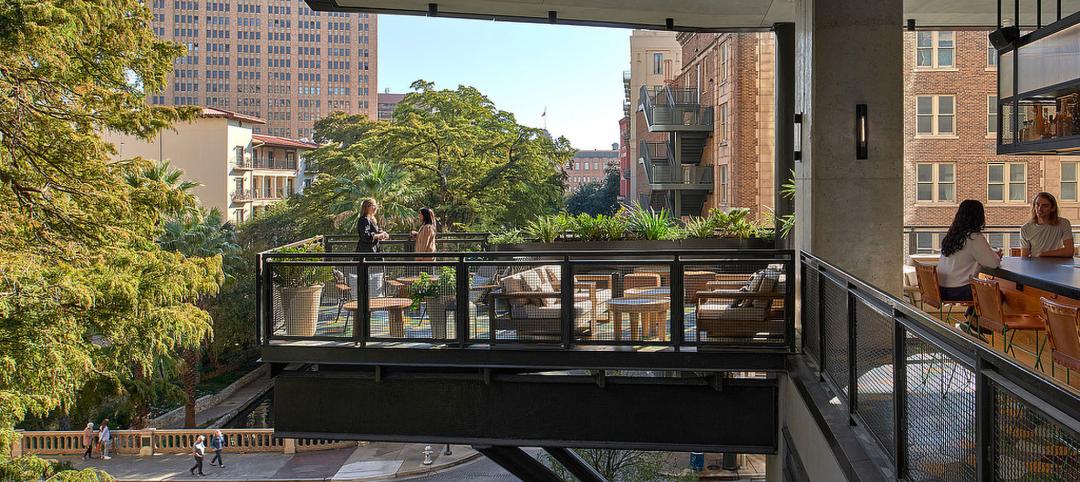One Bryant Park, also known as the Bank of America Tower, in Manhattan faces an estimated $2.4 million in annual fines when New York City’s York’s Local Law 97 goes into effect.
The potential hefty levy on this property is ironic given that it was certified LEED Platinum after it opened in 2010. An in-depth article at Bloomberg.com about this predicament illustrates the complexities owners face in addressing the law, which imposes carbon caps that are backed up by fines for non-compliance.
Passed in 2019, the law is a sweeping measure establishing emissions limits for almost 50,000 of the city’s largest buildings. The owners of an estimated 20% of these office buildings, hotels, and multifamily properties will likely face fines in 2024 when the law goes into effect. Many more buildings would face fines in 2030, when the caps will be lowered by 40%.
Part of the issue for the Bank of America Tower is a density of employees with heavy computer usage—at least on some floors—that use a lot of electricity. The owner says Local Law 97 is deeply flawed because it doesn’t distinguish between different densities and usages of properties and points out that the terms of the lease with the bank preclude him from limiting their power usage.
The Bank of America Tower had some impressive green features when it was built: a natural gas-fueled cogeneration plant for electricity that uses heat from the combustion process for additional power to operate HVAC systems, a cooling system that uses ice made overnight when power demand is lower, and a green roof. Today, when the ultimate goal is carbon neutrality, though, these features do not create the desired impact.
The details of the law are still being worked out, though, and that may bode well for the owner. There is support from some city officials to make allowances for buildings such as the Bank of America Tower that time their energy use.
Related Stories
Multifamily Housing | Apr 21, 2023
Arlington County, Va., eliminates single-family-only zoning
Arlington County, a Washington, D.C., community that took shape in the 1950s, when single-family homes were the rule in suburbia, recently became one of the first locations on the East Coast to eliminate single-family-only zoning.
Urban Planning | Apr 17, 2023
The future of the 20-minute city
Gensler's Stacey Olson breaks down the pros and cons of the "20-minute city," from equity concerns to data-driven design.
Affordable Housing | Apr 7, 2023
Florida’s affordable housing law expected to fuel multifamily residential projects
Florida Gov. Ron DeSantis recently signed into law affordable housing legislation that includes $711 million for housing programs and tax breaks for developers. The new law will supersede local governments’ zoning, density, and height requirements.
Resiliency | Apr 4, 2023
New bill would limit housing sprawl in fire- and flood-prone areas of California
A new bill in the California Assembly would limit housing sprawl in fire- and flood-prone areas across the state. For the last several decades, new housing has spread to more remote areas of the Golden State.
Multifamily Housing | Mar 24, 2023
Washington state House passes bill banning single-family zoning
The Washington state House of Representatives recently passed a bill that would legalize duplexes or fourplexes in almost every neighborhood of every city in the state.
Legislation | Mar 24, 2023
New York lawmakers set sights on unsafe lithium-ion batteries used in electric bikes and scooters
Lawmakers in New York City and statewide have moved to quell the growing number of fires caused by lithium-ion batteries used in electric bikes and scooters.
Multifamily Housing | Mar 24, 2023
Multifamily developers offering new car-free projects in car-centric cities
Cities in the South and Southwest have eased zoning rules with parking space mandates in recent years to allow developers to build new housing with less parking.
Building Tech | Mar 14, 2023
Reaping the benefits of offsite construction, with ICC's Ryan Colker
Ryan Colker, VP of Innovation at the International Code Council, discusses how municipal regulations and inspections are keeping up with the expansion of off-site manufacturing for commercial construction. Colker speaks with BD+C's John Caulfield.
Adaptive Reuse | Mar 5, 2023
Pittsburgh offers funds for office-to-residential conversions
The City of Pittsburgh’s redevelopment agency is accepting applications for funding from developers on projects to convert office buildings into affordable housing. The city’s goals are to improve downtown vitality, make better use of underutilized and vacant commercial office space, and alleviate a housing shortage.
Student Housing | Mar 5, 2023
Calif. governor Gavin Newsom seeks to reform environmental law used to block student housing
California Gov. Gavin Newsom wants to reform a landmark state environmental law that he says was weaponized by wealthy homeowners to block badly needed housing for students at the University of California, Berkeley.

















